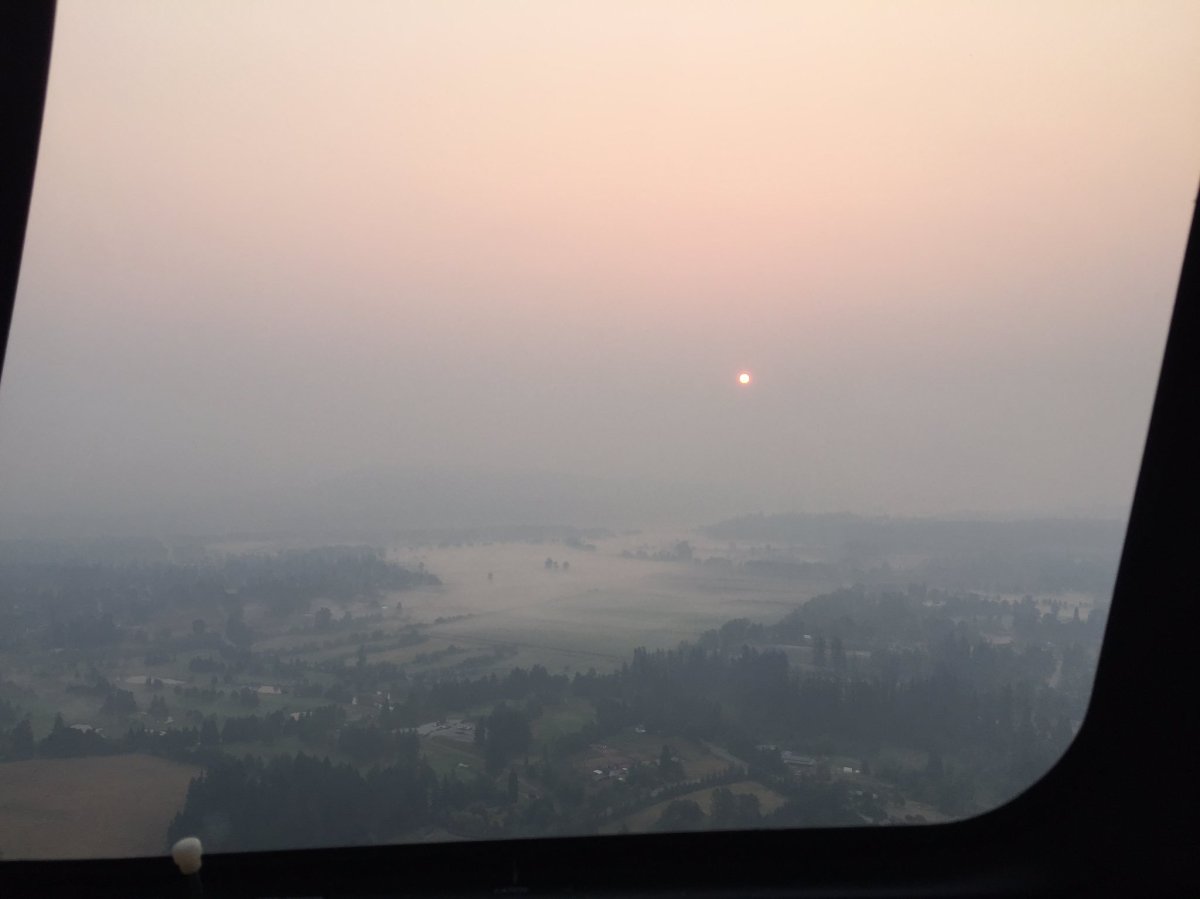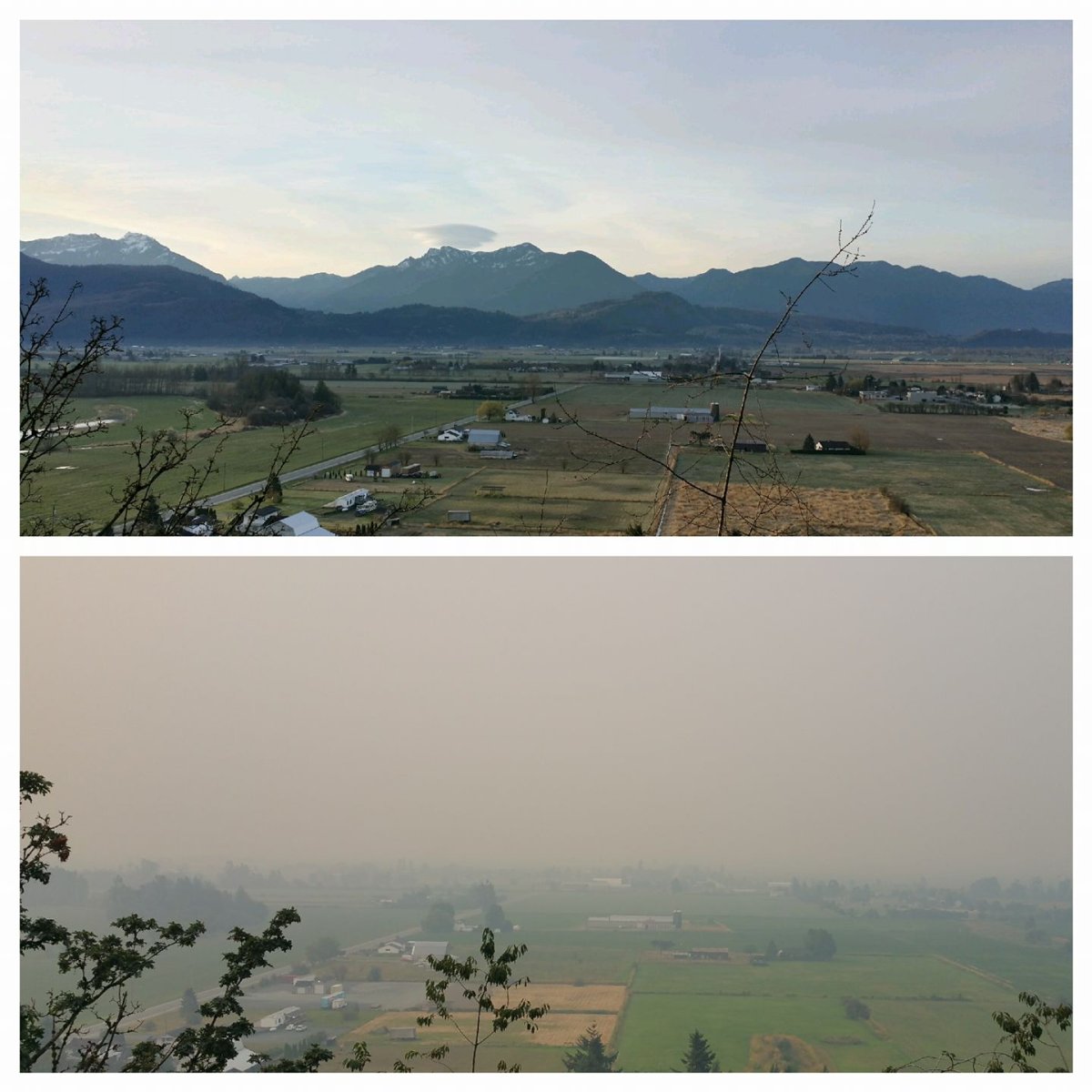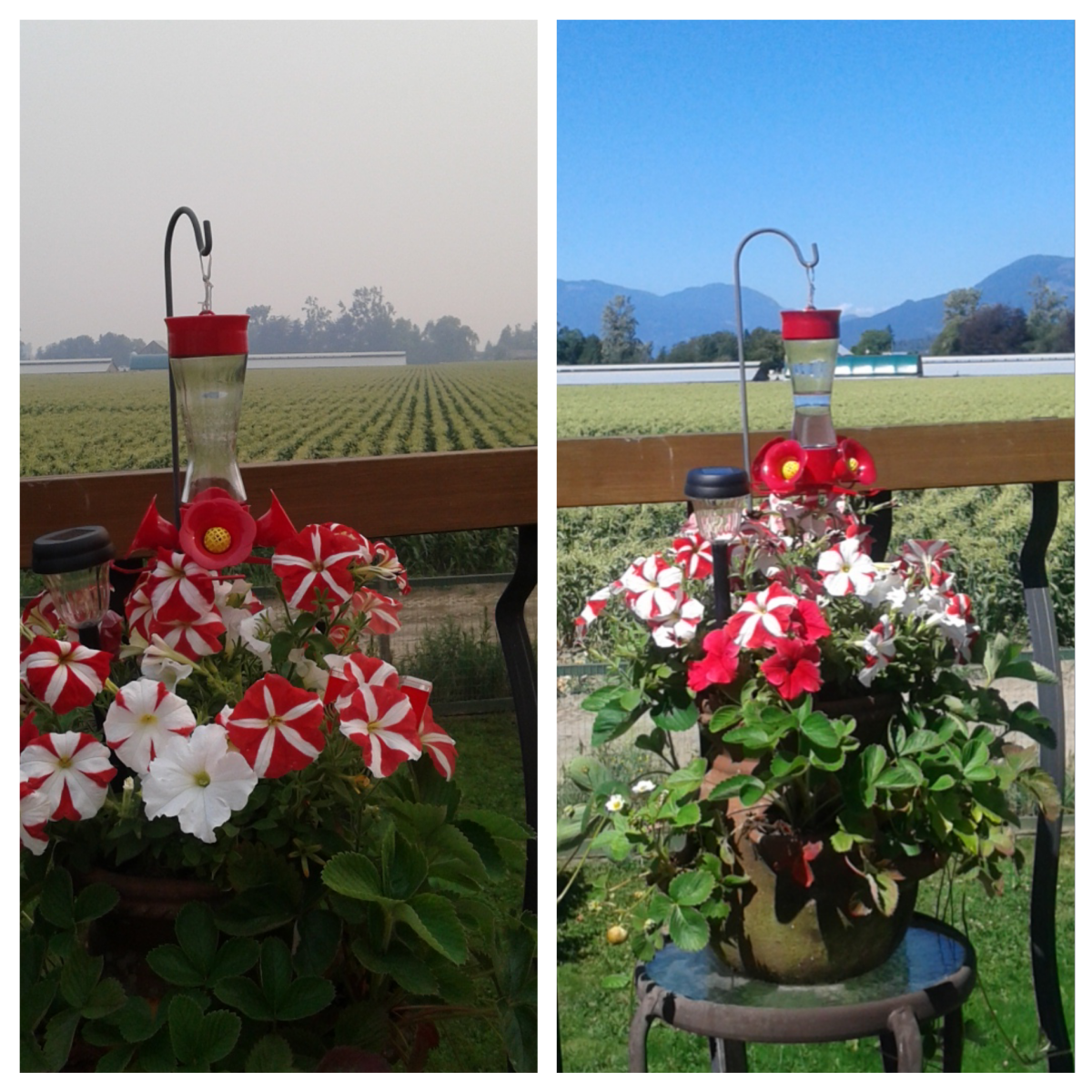It is another hazy wakeup for most of B.C.’s residents today.

In the Lower Mainland, where smoke from the wildfires has blanketed most areas in smoke and haze, air quality remains poor on Thursday.
PHOTOS: Wildfires blanket B.C. in smoke and haze
The air quality advisory for Metro Vancouver and the Fraser Valley has been extended as smoke from the wildfires continues to drift down.
The advisory covers an area stretching from the Cariboo to the Alberta-B.C. border and all the way to eastern Vancouver Island.
People with health conditions, along with infants and the elderly, are encouraged to stay in air-conditioned environments and if others find their breathing becomes laboured they’re advised to slow down their activity.
Meanwhile, B.C. is baking under an intense heat wave that is breaking temperature records in communities all over the province, said a preliminary weather summary from Environment Canada on Wednesday night.
White Rock broke a record set in 1939 by hitting 29.5 C, while the Squamish Airport broke a 1993 record with temperatures reaching 33.2 C.
The hottest temperature in the province Wednesday was recorded in Hope at 37.4 C.
FULL COVERAGE: Wildfires burning around B.C.
WATCH: There are growing concerns about air quality in southwestern B.C. due to smoke from forest fires. As John Hua reports, the air quality index in the Fraser Valley has hit nine out of 10.

Global BC meteorologist Mark Madryga says B.C. set about 15 temperature records Wednesday.
B.C. wildfire season worst in six decades
British Columbia is experiencing its most destructive wildfire season in 60 years.
Kevin Skrepnek of the BC Wildfire Service says 4,910 square kilometres of forest, brush and grassland have been torched, making this year the second worst in recorded history in terms of land lost.
Skrepnek says it is too early to tell whether this year will surpass the 1958 season, when wildfires engulfed more than 8,500 square kilometres.
He says the season is far from over, and that August is usually a busy month for fires.
The BC Wildfire Service is also reaching further afield for reinforcements, with negotiations underway to bring in firefighting crews from Australia and New Zealand, possibly as early as next week.
Skrepnek says a forecast change in weather is expected to shift wind patterns and cut back the smoky haze that has settled over much of B.C.’s coast in recent days.
More evacuations due to wildfires
The Elephant Hill wildfire, burning near Ashcroft, prompted more evacuations Wednesday night.
About 20 homes on the Ts’kw’aylaxw First Nation near Marble Canyon have been evacuated, along with several other properties south and west of Clinton.
Evacuees are being asked to register at the Sandman Centre in Kamloops.
Fire crews attempted a back burn of the Elephant Hill wildfire on Tuesday, hoping to stop the flames from spreading. But the wind changed course and the operation got out of hand, with the fire jumping across Highway 97.
Skrepnek says controlled burns are an essential and effective tool for fighting wildfires and that while accidents do happen, the vast majority of planned burns are successful.
“We’ve been doing this on many fires across the province up until this point,” Skrepnek said during a daily wildfire update conference call.
The wildfire continues to be the biggest burning in the province and has grown to approximately 84,442 hectares.
- Naloxone-resistant street drug linked to 9 deaths in Eastern Canada seized in Alberta
- ‘She gets to be 10’: Ontario child’s heart donated to girl the same age
- Buzz kill? Gen Z less interested in coffee than older Canadians, survey shows
- Bird flu risk to humans an ‘enormous concern,’ WHO says. Here’s what to know
MAP: Where the wildfires are burning around B.C.
Delta closes parks
In Delta, officials have taken precautions against the extremely dry conditions and decided to close five of the city’s parks to the public.
In a statement on its website, the Corporation of Delta says while it understands these closures are an inconvenience to residents, businesses and visitors, it is important to make fire safety a top priority to protect the parks and wilderness areas.
— With files from the Canadian Press and Jesse Ferreras








Comments